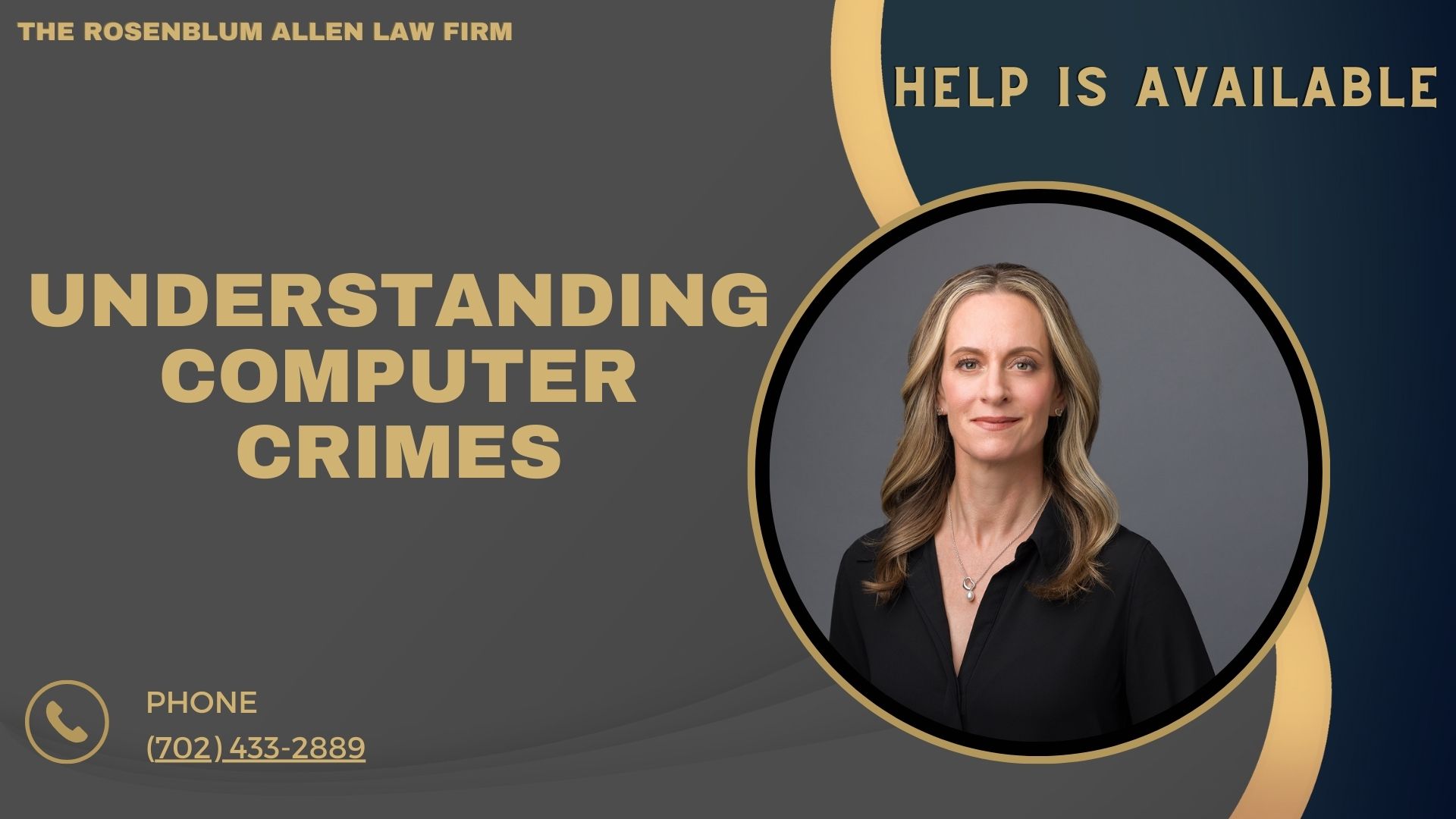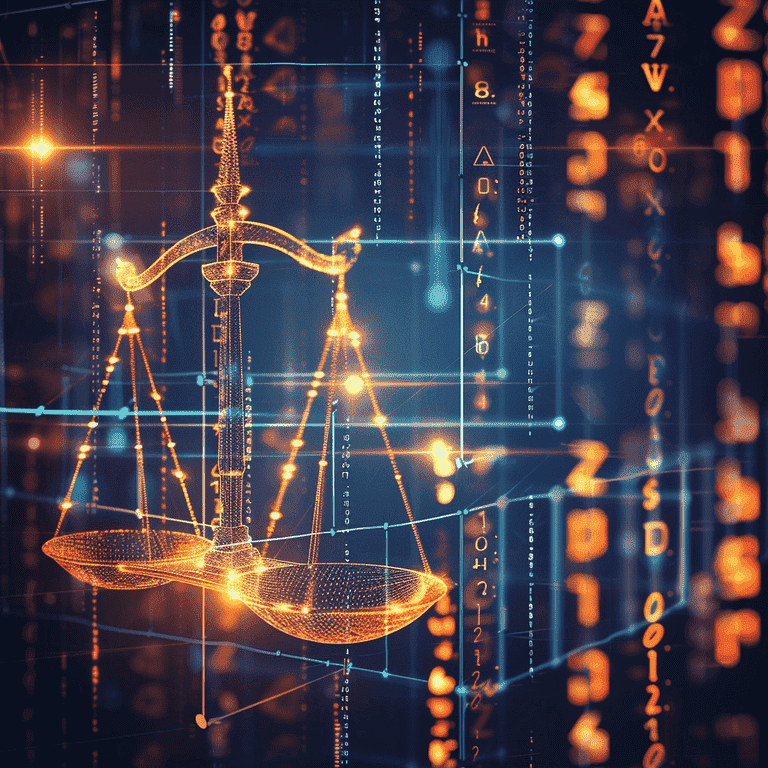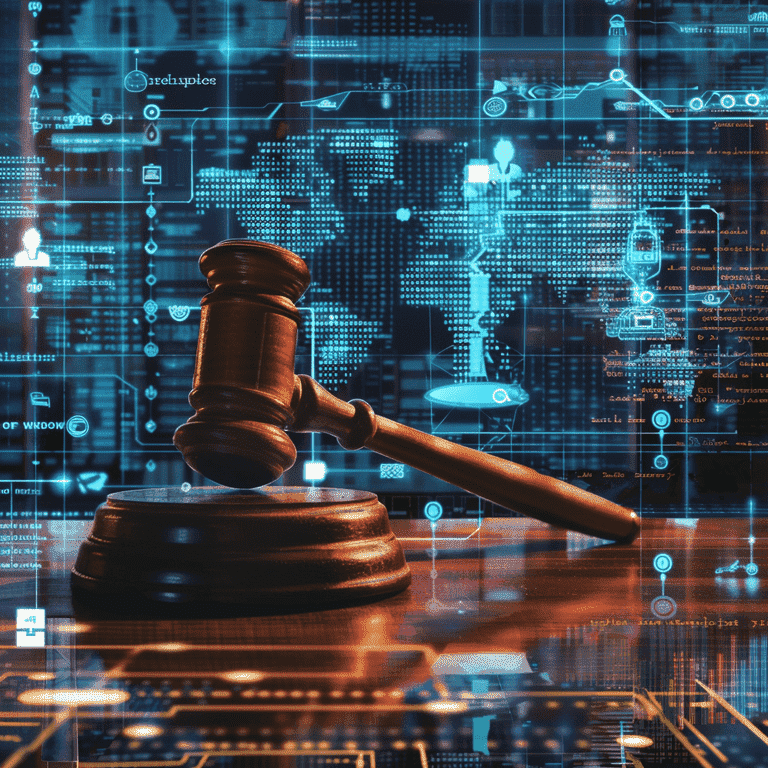Navigating probate in Las Vegas can be daunting. But, the right probate attorney by your side can make all the difference. This guide will help you understand probate in Las Vegas. It will also help you find the perfect lawyer to guide you through it.

Understanding Probate in Las Vegas
Probate is the legal process of handling a dead person’s estate. It ensures their debts are paid and their assets are given out according to their will or the laws of intestacy. In Las Vegas, state laws govern probate. They outline the steps and requirements for settling an estate.
What is Probate?
Probate is the legal process. Through it, the court validates a deceased person’s will. The court also appoints an executor or personal representative to manage the estate. They identify and value the dead person’s assets. Then, they pay off the debts and taxes. Finally, they give the remaining assets to beneficiaries.
Probate Process in Las Vegas
In Las Vegas, probate starts by filing a petition with the right court. This is usually in the county where the deceased person lived. The court then appoints a personal representative responsible for managing the estate’s affairs. The process may involve:
Inventory of Assets: Identifying and valuing the deceased person’s assets, including real estate, bank accounts, investments, and personal property.
Notifying Creditors: Providing notice to creditors to allow them to make claims against the estate for any outstanding debts.
Payment of Debts and Taxes: Settling debts owed by the deceased person and paying taxes owed by the estate.
Distribution of Assets: Distributing the remaining assets to the beneficiaries named in the will or according to state law if there is no will.
Probate can vary in complexity and duration. This depends on the estate’s size, the presence of a valid will, and any disputes.

The Role of a Probate Attorney
A probate attorney on your side can greatly simplify probate. They can also protect your interests. A probate attorney specializes in estate law. They can give valuable help throughout the probate process.
Why Hire a Probate Attorney?
Legal Expertise: Probate attorneys deeply understand probate laws and procedures, ensuring that the estate is administered correctly and efficiently.
Guidance and Support: An experienced probate attorney can guide you through each probate process step, answering your questions and addressing any concerns.
Minimizing Conflicts: Probate attorneys can help minimize conflicts and disputes among beneficiaries, reducing the likelihood of litigation during the probate process.
Efficiency: By handling the legal aspects of probate, a probate attorney can help expedite the process and ensure that the estate is settled as quickly as possible.
Services Offered by Probate Attorneys
Probate attorneys offer many services. They help clients navigate probate.
Estate Planning: Assisting clients with creating wills, trusts, and other estate planning documents to ensure their wishes are carried out after their death.
Probate Administration: Guiding executors or personal representatives through the probate process, including filing required documents, managing estate assets, and distributing assets to beneficiaries.
Probate Litigation: Representing clients in probate disputes, such as will contests, challenges to the validity of a will, or conflicts over asset distribution.
A skilled probate attorney can make the probate process smoother and less stressful. They let you focus on grieving and honoring your loved one’s memory.
Finding the Right Las Vegas Probate Attorney
Finding the right probate attorney in Las Vegas is key. They ensure a smooth probate process. You have many attorneys to choose from. You must consider factors like experience, specialization, and reputation when choosing.
Factors to Consider
When selecting a probate attorney in Las Vegas, keep the following factors in mind:
Experience: Look for an attorney with experience handling probate cases in Las Vegas. An attorney familiar with local probate laws and procedures will be better equipped to navigate the process efficiently.
Specialization: Choose an attorney who specializes in probate and estate law. While general practice attorneys may offer probate services, a specialist will have a deeper understanding of the complexities involved.
Reputation: Research the attorney’s reputation within the legal community and among past clients. Reading online reviews and testimonials can provide valuable insight into the attorney’s professionalism and quality of service.
Communication: Consider the attorney’s communication style and accessibility. You’ll want an attorney who responds to your questions and concerns and keeps you informed throughout the probate process.
Cost: Discuss the attorney’s fee structure upfront to ensure it aligns with your budget. Some attorneys may charge a flat fee for probate services, while others may bill by the hour or take a percentage of the estate’s value.
Researching Potential Attorneys
Once you’ve found potential probate attorneys in Las Vegas, research each one.
Online Reviews: Check online review platforms such as Google, Yelp, or Avvo to see what past clients have to say about their experiences with the attorney.
Referrals: Ask friends, family members, or trusted professionals for recommendations. Personal referrals can provide valuable insights into an attorney’s reputation and capabilities.
Professional Organizations: Look for attorneys who are members of professional organizations such as the State Bar of Nevada or the American Bar Association’s Section of Real Property, Trust, and Estate Law. Membership in these organizations demonstrates a commitment to excellence in probate law.
Consultations: Schedule consultations with multiple attorneys to discuss your case and evaluate your compatibility with each attorney. During the consultation, ask about the attorney’s experience, approach to probate cases, and communication style.
Questions to Ask During the Initial Consultation
Prepare a list of questions to ask each probate attorney. Do this during the initial consultation. It will help you make an informed decision.
How long have you been practicing probate law in Las Vegas?
What percentage of your practice is devoted to probate cases?
Can you provide references from past clients?
How do you approach communication with clients?
What is your fee structure, and are there any additional costs I should know?
How do you handle conflicts or disputes during the probate process?
Picking the right probate attorney in Las Vegas is crucial. They ensure a smooth probate process. Take the time to research and test your options. Find an experienced and trustworthy attorney. They should also be right for your needs and preferences.

Navigating Probate Disputes
The probate process is meant to be smooth and orderly. It settles an estate. But, disputes can arise among beneficiaries or other interested parties. Knowing about common probate disputes. Knowing the role of a probate attorney in resolving them can help you. It can help you navigate these challenges well.
Common Probate Disputes
Probate disputes happen for many reasons. These include fights over the will’s validity. There are also disputes among beneficiaries. And, challenges to the executor’s or personal representative’s actions. Some common probate disputes include:
Will Contests: When a beneficiary or interested party challenges the validity of the deceased person’s will, alleging that it was executed under duress, fraud, or undue influence.
Disputes Over Asset Distribution: When beneficiaries disagree about how the deceased person’s assets should be distributed or believe that the executor is not distributing assets fairly.
Claims Against the Estate: When creditors or other parties claim against the estate for unpaid debts, taxes, or other obligations.
Disputes Involving Guardianship or Conservatorship: When family members disagree about who should be appointed as the guardian or conservator for minor children or incapacitated adults.
Allegations of Mismanagement: When beneficiaries accuse the executor or personal representative of mismanaging estate assets or failing to fulfill their fiduciary duties.
Legal Representation in Probate Litigation
Having a skilled probate attorney on your side is essential in a probate dispute. A probate attorney can represent you. They can advocate to resolve the dispute well and quickly.
How a Probate Attorney Can Help
Legal Expertise: A probate attorney has a deep understanding of probate laws and procedures, allowing them to easily navigate the complexities of probate litigation.
Negotiation Skills: A probate attorney can negotiate with opposing parties to reach a favorable settlement without costly and time-consuming litigation.
Litigation Representation: If litigation becomes necessary, a probate attorney can represent you in court, presenting evidence, arguing legal points, and advocating for your rights.
Mediation and Alternative Dispute Resolution: A probate attorney can help facilitate mediation or alternative dispute resolution methods to resolve probate disputes outside of court, saving time and money.
Computer crimes represent a fast-growing area of concern in our digital world. Technology is advancing rapidly. Criminals are also changing the way they commit crimes using computers. This article aims to clarify computer crimes. It will discuss their types. It will also explore how to prevent them and their legal results. This guide is for tech enthusiasts, concerned citizens, and legal professionals. It will give you a thorough understanding of the subject.
Computer Crimes
Definition and Overview
Computer crimes, often called cybercrimes, involve criminal activities. A computer or network is the source, tool, target, or place of the crime. These crimes can range from illegally downloading and sharing software. They can also include more severe crimes like identity theft, fraud, and cyberstalking.
Understanding computer crimes is crucial. They can harm people, groups, and even national security. We rely more on digital platforms. They also have more potential for these crimes.
Importance of Awareness and Prevention
Awareness and prevention are vital in combating computer crimes. By knowing the types of cybercrimes and seeing the signs. People and organizations can take steps to protect themselves. We need awareness campaigns, education, and strong cybersecurity. They are essential for defending against these digital threats.

Types of Computer Crimes
Hacking
Definition and Examples
Hacking involves unauthorized intrusion into a computer or network. Hackers might steal or change data. They might disrupt services or use the hacked systems to attack others.
Examples:
Gaining unauthorized access to bank accounts
Tampering with government websites
Notable Hacking Incidents
Hacking incidents have made headlines. This is due to their impact and the high-profile targets.
Incidents:
The attack on Sony Pictures in 2014
The WannaCry ransomware attack in 2017
Identity Theft
How Identity Theft Occurs
Identity theft occurs when someone unlawfully obtains another person’s data. They do this through fraud or deception, usually for economic gain.
Methods:
Phishing emails that solicit personal information
Data breaches that expose sensitive information
Impact on Victims
Identity theft can be devastating. It causes financial loss and long-term damage to one’s credit score.
Consequences:
Unauthorized purchases
Difficulty obtaining loans or credit
Cyberstalking
Characteristics of Cyberstalking
Cyberstalking involves repeated use of the internet or other electronic means. It is used to harass, intimidate, or frighten a person or group.
Characteristics:
Sending threatening emails
Spreading false accusations online
Legal Definitions and Examples
Cyberstalking’s definition varies by jurisdiction. It often focuses on intent and repeated behavior.
Legal definition (U.S.):
“The use of the internet, email, or other electronic communications to stalk another person.”
Examples:
Harassing someone through multiple social media platforms
Using GPS to track someone’s location without their consent
Phishing
Techniques Used in Phishing Scams
Phishing scams trick individuals into providing sensitive data by masquerading as trustworthy entities.
Techniques:
Fake emails from banks requesting account information
Fraudulent websites that mimic real business sites
Prevention Tips
Preventing phishing requires vigilance and knowledge of common tactics used by scammers.
Tips:
Verify the authenticity of requests for private information
Do not click on links in unsolicited emails
Malware Deployment
Types of Malware
Malware is short for malicious software. It includes various types of harmful software. They are designed to damage, disrupt, or gain access to a computer without permission.
Types:
Viruses
Spyware
How Malware Spreads
Malware can spread through many channels. Understanding its spread is critical for prevention.
Methods:
Email attachments
Infected software downloads
This overview of computer crimes offers a peek into the challenges of cybercriminals. They pose complex problems. Their challenges are ever-changing. As we delve into prevention and laws, staying informed and vigilant is more clear.

Technological Advances and Computer Crimes
The Role of Technology in Advancing Criminal Methods
As technology progresses, so do the tools and methods available to cybercriminals. New technology creates new paths for criminals. It’s a race between cops and hackers.
Examples from Recent Years:
Use of cloud storage for illicit data sharing
Cryptocurrencies facilitating untraceable financial transactions
Emerging Trends in Computer Crimes
With every technological advance, new types of cybercrimes emerge. These are evolving rapidly, challenging current security measures.
Artificial Intelligence and Crime:
AI-powered phishing attacks that mimic human behavior
Deepfake technology is used to create false identities or misleading videos.
The Dark Web and Anonymity:
Sale of illegal goods and services shielded by anonymity
Forums for sharing hacking tips and malware

Prevention of Computer Crimes
Individual Measures
Individuals can take several steps to safeguard themselves against cyber threats. It’s about being proactive and security-conscious.
Secure Personal Information:
Regularly update passwords and use multi-factor authentication.
Be cautious about sharing personal details online.
Use of Antivirus and Anti-malware Software:
Install and update security software to protect against threats.
Regular scans to detect and remove malicious software
Organizational Measures
Organizations play a key role in preventing computer crimes. They do this by setting strong cybersecurity practices.
Implementing Robust Cybersecurity Protocols:
Firewalls, intrusion detection systems, and secure encryption methods
Regular security audits to identify and mitigate vulnerabilities
Regular Employee Training and Awareness Programs:
Workshops on recognizing phishing scams and safe internet practices
Updates on new security policies and technologies
Governmental Measures
Governments worldwide are stepping up to fight computer crimes. They are doing this with laws and international cooperation.
Cybersecurity Laws and Regulations:
Laws like the E.U.’s General Data Protection Regulation (GDPR) protect user data.
Mandatory data breach notifications to inform affected individuals
International Cooperation and Agreements:
Partnerships between countries to combat cybercrime globally
Shared initiatives to track down and prosecute cyber criminals

Legal Frameworks Addressing Computer Crimes
National Laws
Each country has its own laws. They are designed to tackle the unique challenges of cybercrimes.
Examples from U.S. Federal Law:
The Computer Fraud and Abuse Act (CFAA)
The Electronic Communications Privacy Act (ECPA)
State-Specific Cybercrime Laws:
Different states may have variations in laws regarding data breach notifications and privacy protections.
International Legislation
Dealing with computer crimes on an international scale requires cooperation beyond borders.
The Budapest Convention on Cybercrime:
A major international treaty that provides a framework for countries to make their cybercrime laws compatible and support each other
Other International Agreements and Efforts:
Agreements within the United Nations or between specific countries for policing cybercrimes
These sections build on the initial exploration of computer crimes. They discuss advanced technological threats. They also cover the global legal response. This response is designed to manage and reduce these risks. Technology advances. This requires comprehensive protection and strong laws.

Case Studies of Prosecuted Computer Crimes
Significant U.S. Cases
Studying past cases provides insight. It shows how computer crimes are handled by law and the consequences for criminals.
Details of the Case:
The Target Data Breach (2013) was a significant hacking incident in which the personal information of nearly 70 million customers was stolen. The breach highlighted vulnerabilities in big corporations’ cybersecurity systems.
The Silk Road Shutdown (2013): A notorious online black market for drugs and illegal goods, run on the dark web, was closed down by the FBI. Its founder was sentenced to life in prison.
Outcome and Sentencing:
In the Target breach, the company faced heavy fines and legal settlements, compelling a reevaluation of security protocols.
In the Silk Road case, the solid legal actions taken sent a clear message about the severity of operating illegal marketplaces online.
International Cases
Internationally, many high-profile cases have shown how cybercrime crosses borders. They have shown its reach and complexity.
Noteworthy Global Incidents:
The WannaCry Ransomware Attack (2017): This global cyberattack affected over 150 countries, encrypting data and demanding ransom payments in Bitcoin. It hit the U.K.’s National Health Service hard, disrupting services and equipment.
The Hacking of Yahoo (2014): Over 500 million user accounts were compromised in history’s most significant data breach. The attackers, believed to be state-sponsored, stole user data, including passwords and personal information.
Lessons Learned:
The WannaCry incident underscored the importance of keeping systems updated and the global impact of ransomware.
The Yahoo breach highlighted the long-term implications of such attacks on corporate reputation and the need for stringent data protection measures.
Challenges in Combating Computer Crimes
Evolving Nature of Technology
Technology advances quickly. As soon as one vulnerability is fixed, new ones are found. Cybercriminals are quick to exploit any weakness.
Adaptability of Cybercriminals:
Criminals continuously develop new methods to bypass security measures, making static defense strategies insufficient.
Jurisdictional Issues
One of the biggest hurdles in fighting computer crimes is the issue of jurisdiction. Cybercrimes often transcend national borders, complicating legal proceedings.
Challenges of Cross-Border Crimes:
Different countries have varying laws, leading to conflicts in prosecuting cybercrimes.
Extradition processes can be lengthy and complex, often hindering swift justice.

Breaking It All Down
This guide has covered the types and prevention of computer crimes. It also covered the legal frameworks and significant cases. It provides a comprehensive look into the complex world of cybercrime.
Staying informed and adaptable is crucial in the fight against computer crimes. As technology evolves, so must our prevention strategies and legal response. Awareness and education are vital. They ensure all stakeholders are ready to face these challenges. This includes everyone from individual internet users to multinational corporations.
This overview covers the ever-changing landscape of computer crimes. It emphasizes the need for a watchful approach to cybersecurity. It also stresses the need for proactive legal defense. By understanding these crimes’ nature and scope, we can better protect our digital lives.

Frequently Asked Questions
Q: Does it matter who files for divorce first?
A: Yes, being the first to file can have advantages. It may set the tone of the proceedings. It may affect the jurisdiction if the parties live in different areas.
Q: What should I do before filing for divorce?
Prepare by collecting financial documents. Also, think about your living arrangements. And, seek advice from a lawyer. This preparation can protect your interests and provide clarity during the legal process.
Q: Can filing for divorce impact my financial situation?
A: Filing for divorce can indeed affect your finances. It may affect how assets are divided. It may also impact who handles debts. It may affect future financial obligations, like alimony and child support.
Q: How does the choice of no-fault or fault-based divorce affect the process?
A: The type of divorce you choose can affect the complexity and duration of your case. No-fault divorces are quicker and less contentious. Fault-based divorces need proof of wrongdoing and lead to more complex proceedings.
Q: What are the implications for child custody if I file for divorce?
A: The parent who files doesn’t necessarily have an advantage in custody decisions. Custody is based on the child’s best interests. This considers parental involvement, the child’s needs, and each parent’s living situation.
Q: Is it beneficial to consult a lawyer before filing for divorce?
A: Consulting a lawyer can provide crucial guidance tailored to your situation. A lawyer can help you get your rights. They can tell you the likely outcomes based on your situation. They can also tell you how to prepare well for the process.
Q: How can I manage the emotional stress of filing for divorce?
A: Consider support from therapists or counselors who specialize in divorce. They can offer strategies to handle the emotional challenges and maintain your well-being.

Additional Resources for You
For those navigating legal challenges, our lead attorney, Molly Rosenblum Allen, Esq., has developed a comprehensive suite of resources to assist you. Below you’ll find a list of additional legal services and resources available at The Rosenblum Allen Law Firm, designed to support you during challenging times:
- Criminal Defense Attorneys: Expertise in defending a wide range of criminal charges.
- Las Vegas DUI Lawyer: Specialized defense for DUI charges to help you navigate the legal implications.
- Domestic Violence Lawyer Las Vegas: Assistance for those accused of or facing domestic violence charges.
- Drug Possession Lawyer: Defense strategies for drug possession charges, tailored to your specific case.
- Sex Crimes Attorney: Sensitive and robust defense for those accused of sex-related offenses.
- CPS Defense Attorney: Legal representation for cases involving child protective services.
- Misdemeanor Lawyer: Legal advice and representation for misdemeanor charges.
- Las Vegas Warrant Defense Attorney: Help in dealing with outstanding warrants and related court procedures.
- Las Vegas Probation Violation Attorney: Guidance and defense for probation violation issues.
- Theft Crime Defense Lawyer: Legal support for those facing theft charges.
- Kidnapping Lawyers: Defense services for kidnapping accusations.
- Juvenile Defense Lawyers: Specialized legal assistance for juveniles facing criminal charges.
- Firearms Lawyer Las Vegas: Effective defense for firearms-related legal issues.
Molly Rosenblum Allen, Esq. and the team at The Rosenblum Allen Law Firm are committed to providing you with the legal support you need during your time of need.

Outside Resources for You
American Bar Association: This site offers general legal resources, including guidance on finding legal representation and tips for understanding your rights during a divorce.
National Domestic Violence Hotline: Provides confidential assistance and support for anyone affected by domestic violence, which can be a critical resource during divorce-related issues.
FindLaw: A comprehensive legal website offering free resources on a wide range of legal topics, including detailed articles about the divorce process and family law.
Mental Health America: Offers resources on managing mental health challenges that can arise during stressful life events like divorce.
National Council of Juvenile and Family Court Judges: Provides a wealth of information related to the handling of family law matters in court, especially useful for understanding child custody issues.
Substance Abuse and Mental Health Services Administration (SAMHSA): This site includes resources for addressing substance abuse and mental health concerns, which can be pertinent in cases involving custody and personal well-being.
U.S. Department of Justice: Offers resources and information on federal laws, which can be useful for understanding legal protections and rights under U.S. law.

A Special Message from Our Lead Attorney, Molly Rosenblum Allen, Esq

Thank you for taking the time to explore our resources. If you’re ready to address your situation with professional legal guidance, please call me and my team at (702) 433-2889. We look forward to helping you navigate your legal challenges and support you every step of the way.
Best regards,
Molly Rosenblum Allen, Esq.
The Rosenblum Allen Law Firm




